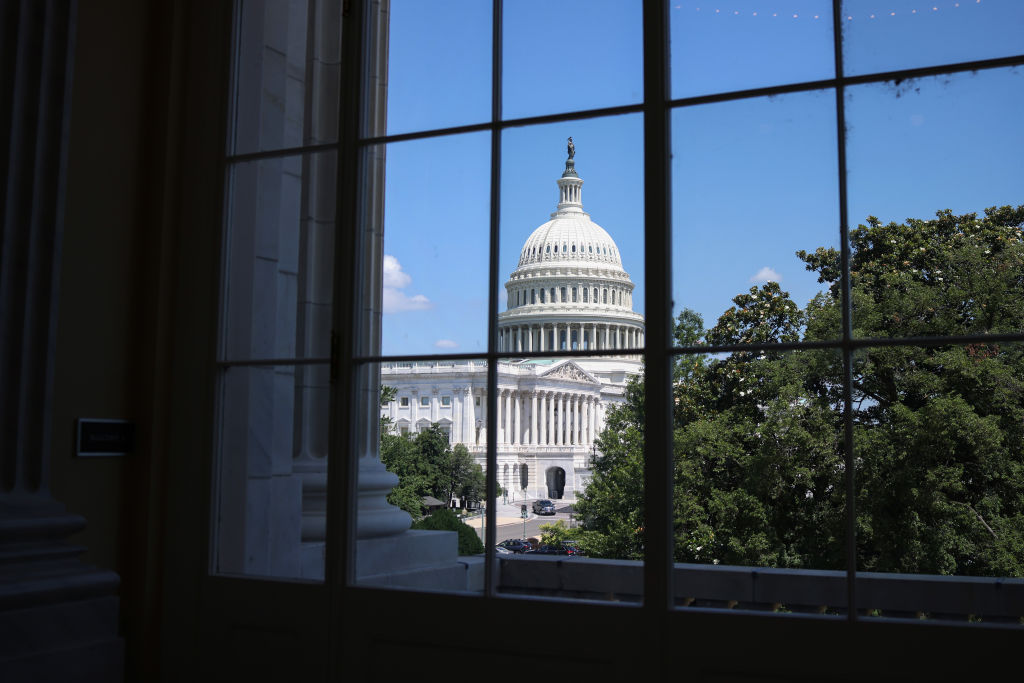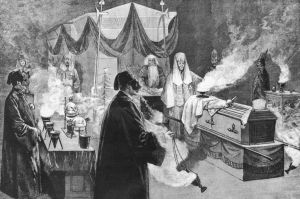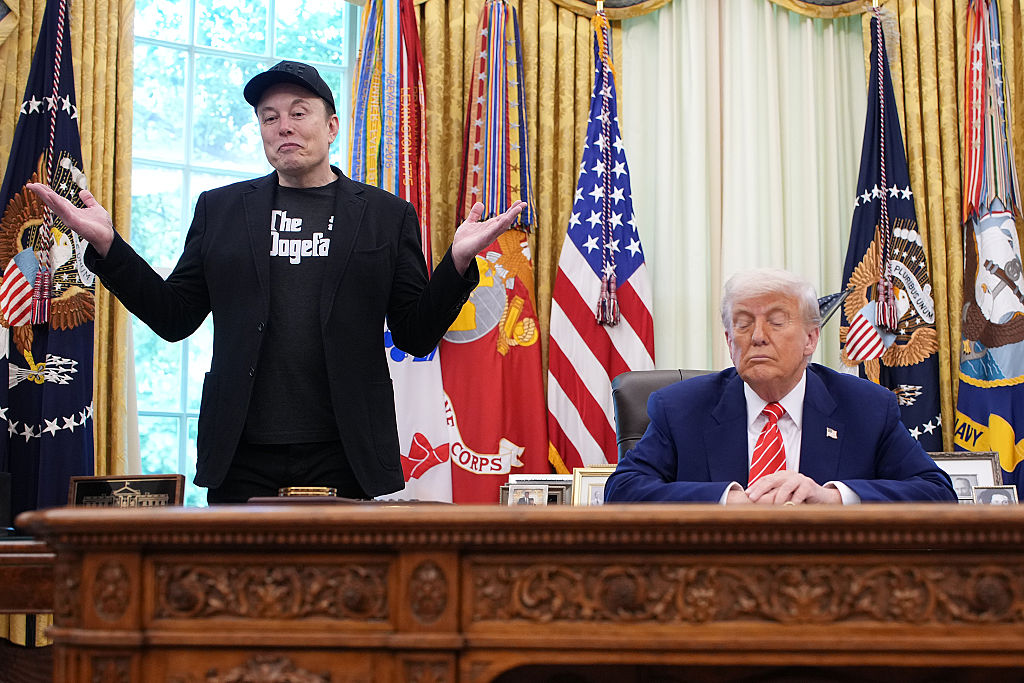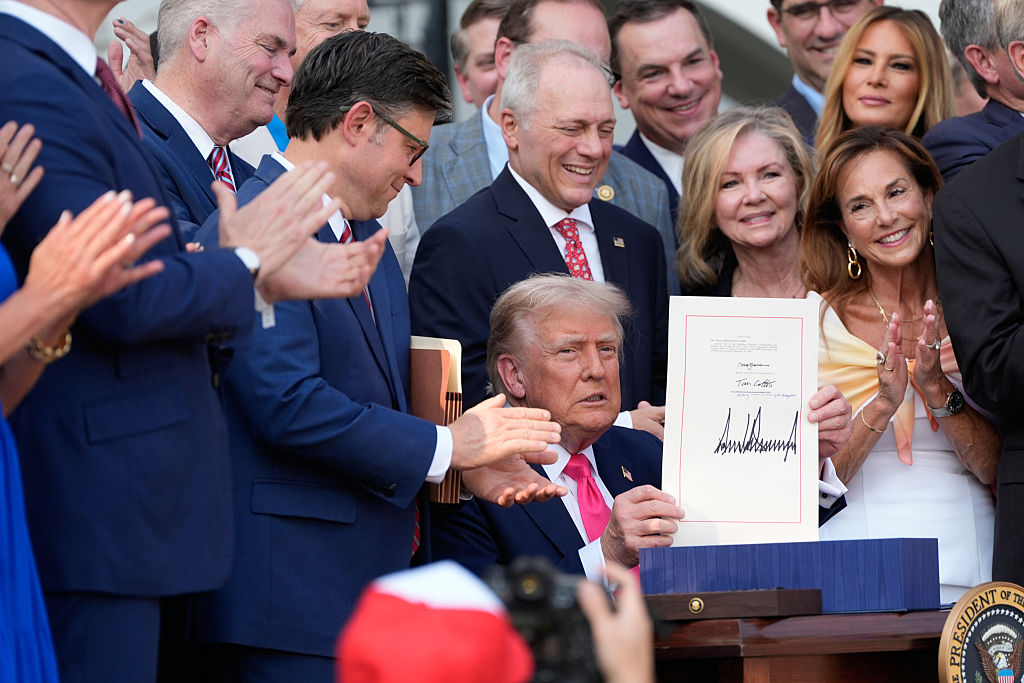The official Twitter account of VOX Madrid, the local chapter of a Spanish political party, noted a funny and familiar thing recently.
In 2015, under a Communist party mayor, the colors of the rainbow illuminated Madrid’s city hall in a tribute to the LGBTQ community. In 2021, under a conservative mayor, the same rainbow shone over city hall. ‘The left proposes new ideas, the center adopts them, and the so-called right administers them,’ tweeted VOX with pictures of the two scenes. It’s hard to think of a better description of what the Republican party does in the United States.
On the culture war side, for example, Juneteenth had until recently been an obscure and irrelevant event for most Americans. Google search queries for ‘Juneteenth’ form a virtual flatline from 2004 until last year’s Black Lives Matter riots. The latest Gallup data shows more than 60 percent of Americans know ‘nothing at all’ or only ‘a little bit’ about the day. Among Republican voters, just 7 percent favored making Juneteenth a national holiday while 43 percent were opposed and 50 percent said they didn’t have an opinion; that is, until their party gave them one. The GOP not only voted unanimously with Democrats to fix June 19 as a national holiday but took to browbeating critics. Thus after months of complaining about critical race theory, Republicans inaugurated the equivalent of a critical race theory holiday.
As far as policy goes, the GOP follows a similar pattern: it complains about its enemies but either helps them or does little to nothing — or nothing good — when it has power. The debate over infrastructure bears this out.
Mitch McConnell is pulling out all the stops to pressure the Democratic party to further sever the link between a bipartisan infrastructure deal and a bigger ‘human infrastructure’ bill filled with progressive party favors ranging from spending on childcare and fighting climate change. The second partisan bill also proposes corporate tax raises — which may be the real sticking point for the GOP. Democrats, McConnell complains, want to ‘hold a bipartisan bill hostage over a separate and partisan process’.
‘I appreciate the President saying that he’s willing to deal with infrastructure separately,’ McConnell said Monday. ‘But he doesn’t control the Congress. The speaker and the majority leader of the Senate will determine the order.’ To be sure, the partisan spending bill is a Trojan horse filled with poison pills. But the truth is that this is a horse that the GOP allowed their enemies to wheel up to the city gates.
It wasn’t so long ago that Republicans assumed control of Congress and the White House at a time when Americans viewed infrastructure as former president Donald Trump’s most important campaign promise. The GOP rode a wave of positive populism — a constructive vision rather than the usual hollow declarations of those things against which they are opposed. For a brief moment, it was the GOP that had become and won as the party of hope and change. And in exchange for their constituents’ support, it delivered them the half-assed ‘Infrastructure Week‘ punchline, corporate tax cuts and unleashed scores of dangerous felons from federal prison ahead of the most destructive riots in recent history.
The GOP, of course, frames itself as the party of fiscal responsibility and limited government — those are its key excuses for dragging its feet on or outright avoiding issues like infrastructure. Those assertions, however, are absurd and false.
In terms of the federal workforce, the size of the government actually swelled under Trump towards, ironically, the highs of the Reagan era. Both left behind a larger federal workforce than what they found. And the national debt soared under Trump, fueled by the Tax Cuts and Jobs Act. The increase in government employees and national debt occurred before the pandemic.
Though Republicans may complain about the Democratic party’s infrastructure partisanship, they aren’t above making their own brazenly partisan moves for the right price and people.
‘More than a dozen Republican state treasurers are threatening to pull assets from large financial institutions if they agree to decarbonize their lending and investment portfolios,’ Axios reported on May 26. This is a remarkably big government action by the party of limited government. It, or some variation of it, could potentially be used against institutions and NGOs promoting, say, gun control and critical race theory. In fact, one form of critical race theory — annihilating the suburbs in the name of racial justice — is woven into the fabric of Biden’s infrastructure plan, yet the GOP remains conspicuously silent. Perhaps they were too busy celebrating Juneteenth and still terrified of being called racist. At any rate, striking at the financial root of the grievance racket would be a tactically powerful approach — but it would also mean that the GOP would actually have to work primarily, directly in the interests of its constituents, rather than interest groups. Instead, it’s happy to continue the kabuki theater of principles and patriotism, most recently with infrastructure at center stage.
‘If McConnell were to pull his caucus back from the infrastructure bill,’ writes Burgess Everett in Politico, ‘Democrats could conceivably roll everything together into one big package and pass it via reconciliation without a single GOP vote.’ Indeed, Sen. Tim Kaine worries not about McConnell’s posturing and would tell him in that case, ‘you killed the bipartisan deal, but you gave us some good ideas’ — which is often more than what they give their voters.

























